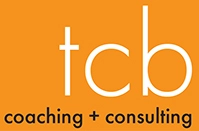
Some clients have trouble keeping up with the sheer volume of e-mail and instant messages, and then haphazardly engage with them. Others check in boxes compulsively, worried that something crucial will be missed or lost. Some feel compelled to immediately respond to any incoming message for fear of upsetting the sender. We might ask ourselves, “Is this how I want to live and work? Is there a better way?”
When I started practicing law in the mid-1990s, some lawyers didn’t have a computer on their desk let alone an e-mail address. E-mail was a novelty. It was for letting us know about treats in the break room, chatty messages with friends or scheduling an appointment.
E-mail was the original “instant message.” As time went on, e-mail became So. Much. More. E-mail and instant messages now dominate how we communicate and work. We get added to chats, and CC’d and BCC’d to be “kept in the loop.” Replies and responses fly back and forth with a click. E-mail might replace some in person meetings or phone calls, adding to the heavy e-mail traffic we try to manage with in boxes, folders and spam filters.
Is this how you want to live and work? I hope not.
Is there a better way? Yes, but it takes intention and practice.
First, consider the role e-mail should play in your life and work. The unexamined role of e-mail is limiting your productivity and satisfaction. If you made the rules, how would you use and manage e-mail?
In his new book, A World Without E-mail (Portfolio, Penguin Random House, 2021) author Cal Newport envisions the future of work with less reliance on and domination by e-mail. Some planning and structure up front on a new project, committee or task can eliminate a lot of e-mail traffic. This frees up more time for creative projects, planning, and productive “Deep Work”: working from an intentional daily plan with time for uninterrupted work on projects and tasks. E-mail can be useful but it is a tool that we should use for certain types of communication and not as a dictator of what work we must do next. (For more on “Deep Work” see Newport’s book by the same title. And Newport’s “Deep Questions” podcast, in particular, episode 83 “Is E-Mail Work?”).
Second, raise your e-mail bumpers. Beginning bowlers use bumpers as guardrails to keep the ball out of the gutter. In the same way, we can create structure and routine to guide our interaction with e-mail and keep it from derailing our productivity. For example, Productivity Coaching clients learn to scan e-mail at selected intervals between project work sessions and meetings. They set aside time to respond to e-mail or create a calendar entry or task for working on a response at another time.
Third, re-frame the importance and immediacy of e-mail. You might say, “But, but, but! My boss/client/other important person will freak out/fire/disown me if I don’t read and respond immediately!!” To which I say, “Is that really true? And if so, is it worth it?” Demonstrate your increased productivity with blocks of uninterrupted time used to produce high quality, timely and accurate work product, along with contemporaneous time entries. Actively shape client expectations for how and when to reach you and your staff from the beginning of the relationship. Ask loved ones to honor your need for uninterrupted time at work and promise to review and respond to their messages a few times a day, but not continuously.
Fourth, work on letting go of the impulse to check messages. Even when you don’t feel compelled to review every incoming e-mail and message immediately, it may be hard to let go of the neurobiological pay-off from checking for messages. Instead, notice this urge and practice doing other things with your time and attention. You could create a plan for your day that includes time for working on priorities and projects. Or, take a break and get up from your desk to check in with a colleague. Or, take a moment for mindfulness by taking a few deep breaths and looking outside at nature. Whatever you intentionally choose to do with the time, attention and freedom you reclaimed will be better than the drain of reflexively and unconsciously checking and responding to messages.
If you or a colleague struggle to manage the Elephant in Your In Box, consider if additional skill development and support could be helpful. E-mail management is a skill that can be learned and practiced over time and is well suited to coaching. Coaching helps clients identify issue areas and work on them in a supported, accountable and effective way to implement better skills, habits and practices in work and life
To learn more about how coaching can help with e-mail management and other productivity skills, contact me to schedule a free 30 minute consultation at 503-734-7232 or heather@tcbcoaching.com
